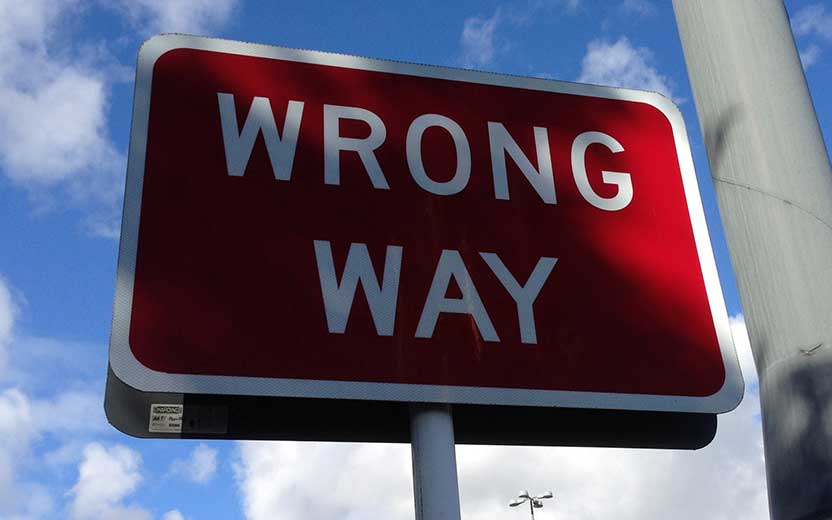By Marcus Fernandez
Florida is one of only 12 states that have no-fault auto insurance laws. It may not mean much to you now, but it could pay for some or all of your medical expenses if you are the at-fault driver.
All drivers in Florida must have an endorsement in their automobile insurance policies providing coverage for them and their passengers for payment of expenses related to their injuries. No-fault coverage in the Sunshine State is personal injury protection (PIP), which you add to the bodily injury coverage that pays claims made against you by people injured in an accident that you caused.
If this all sounds confusing, it can be unless you understand the role that liability has in determining who receives compensation for personal injuries in a car accident, and who becomes responsible for paying it. Fortunately, that’s what this article will cover along with providing you with more information about no-fault laws, the limits the laws place on an injured person’s right to sue for compensation, and what you need to know to protect your rights when someone sues you for being the at-fault driver in a car accident.
How does PIP work in a car accident with personal injuries?
When a car accident happens in a fault state, which means a state that does not require no-fault insurance coverage, an injured person must file a lawsuit against the driver or drivers who were at fault in causing the crash. In Florida, a driver or occupant of a vehicle involved in a crash must first file a claim through their PIP coverage.
The PIP coverage on a vehicle covers not only the driver, but it also covers the following people:
- Occupants of the vehicle who do not have an auto policy of their own with PIP coverage.
- Pedestrians and bicycle riders who do not have their own PIP insurance to handle their claim may file through the coverage of the car that ran into them.
- Members of the household of a motorist insured driver with PIP coverage.
The minimum PIP coverage is $10,000, and it pays 80% of medical expenses that are necessary and reasonable for treatment of the injuries caused by the crash. PIP also includes payment of 60% wages lost from being out of work because of your injuries.
If you are injured in a car accident in Florida, you contact your own auto insurance company to file a PIP claim. In fault states, your personal injury attorney would contact the insurance company, but you only have a claim in those states if you can prove that someone other than you was at fault. Your PIP claim does not require proof of fault, so it works to your advantage in cases where you are responsible for causing a crash.
Florida has a 14-day rule that allows an insurance company to deny a PIP claim when the injured person does not seek medical treatment within 14 days from the accident. Some injuries, such as a concussion or whiplash, may take hours or even days for symptoms to develop. So, the best way to protect yourself against the 14-day rule is to arrange for a medical evaluation right away.
No-fault laws limit the right to sue except for serious injury
Making a claim for damages against an at-fault drive is limited under no-fault law in Florida. Unless a person injured in a crash that you caused has a serious injury, they cannot sue you. They can only rely on PIP coverage.
Florida law defines a “serious injury” as an injury resulting in the one or more of the following:
- Permanent and significant loss of a bodily function.
- An injury that is permanent according to a reasonable degree of medical probability.
- Permanent and significant disfigurement or scarring.
- Death.
If someone sues you to recover damages for an accident they claim that you caused, your defense attorney may challenge whether they have a serious injury giving them the legal right to sue.
What does “at fault” mean in a car accident?
The standard of care the law expects of all motorists is to maintain control over their vehicles. As well as obey the traffic laws and keep a lookout for vehicles, pedestrians and bicyclists. A motorist who exceeds the speed limit, for example, may be held responsible for causing a crash. They could be compelled to pay compensation to people injured in the accident.
If you were in an accident and someone was seriously injured, the injured person may file a personal injury lawsuit. Recoverable damages include the following:
- Medical expenses, including doctors, hospitals and physical therapy, incurred for treatment of their injuries.
- Anticipated expenses for future surgery and other medical care they may need to recover from the injuries.
- Lost earnings as well as lost or diminished future earning capacity.
- Conscious pain and emotional suffering they endured.
- Lost or diminished enjoyment of life. For example, not being able to participate in activities as they did before the accident.
Damage recoverable by a person injured in a car accident can be substantial. But the burden is on the party seeking to recover damages in a personal injury lawsuit. They must prove their damages and that you were at fault. Your defense attorney will challenge the evidence submitted to weaken the strength of the case. Another possible defense is contributory or comparative fault.
Contributory fault in Florida
It is not unusual in an accident for an injured person to have contributed to the crash in some way. For example, a motorist exceeding the speed limit crashes into another vehicle making an illegal left turn. The driver making the turn is seriously injured.
The contributory fault law in Florida does not prevent the injured driver from suing to recover damages. But it allows a judge or jury to consider the fault of the injured person in causing the accident. If the injured person is 20% responsible, then the damages they would otherwise have received is reduced by 20%.
What to do after a car accident where you may be at fault?
If you are injured in a Florida car accident, speak to a Tampa personal injury attorney right away. An attorney will explain your rights to you. Including your right to recover damages from the party who was at fault. Do not assume that because you may have been at fault in some way that you cannot recover damages. It is better to let an experienced personal injury attorney review the facts on your behalf.


